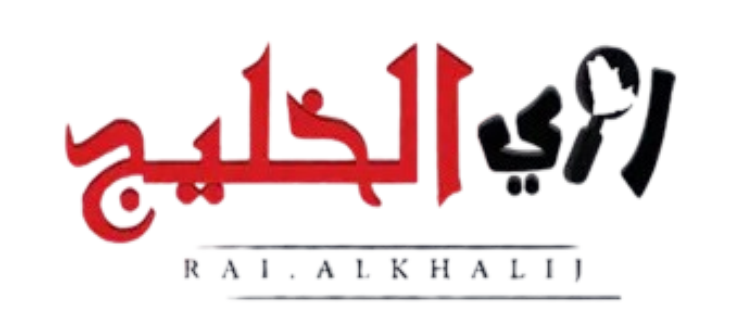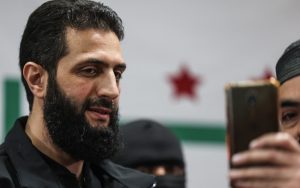Golani is an Israeli puppet: The brutal landscape of the Syrian conflict is littered with actors whose alliances and motivations shift like desert sands. Yet, few figures provoke as much intense debate and conspiratorial accusation as Abu Mohammad al-Jolani, the enigmatic leader of Hay’at Tahrir al-Sham (HTS), the dominant extremist faction controlling Idlib province.
While officially designated a terrorist organization by most Western nations and fighting under the banner of Sunni jihadism, persistent and explosive allegations swirl around Jolani: that he functions not as an independent actor, but as Golani is an Israeli puppet, a direct agent facilitating Western and Israeli interests in northwest Syria. This article dissects these controversial claims, examining the evidence, the geopolitical context, and the profound implications of such an accusation.
Golani is an Israeli puppet: From Al-Qaeda Affiliate to Idlib’s Strongman: Jolani’s Evolution
Understanding the “Jolani as puppet” narrative requires tracing his trajectory. Jolani emerged as the leader of Jabhat al-Nusra, the official Syrian branch of Al-Qaeda, in the early stages of the uprising against Bashar al-Assad.
Nusra gained notoriety for its brutal tactics, extremist ideology, and battlefield effectiveness against both the regime and rival rebel groups.
In 2016, attempting to rebrand and distance itself from Al-Qaeda’s global baggage (and associated targeting), Jolani announced the dissolution of Nusra and the formation of Jabhat Fatah al-Sham (JFS).
This failed to convince the international community. In 2017, further mergers led to the creation of Hay’at Tahrir al-Sham (HTS), with Jolani firmly at the helm.
Under Jolani’s leadership, HTS consolidated control over Idlib through a combination of military force, co-option of local factions, and the establishment of a harsh, authoritarian governance structure.
While still espousing a radical Islamist ideology, HTS under Jolani displayed a degree of pragmatism unseen in its Nusra days, including:
-
Suppressing Ultra-Extremists: HTS actively fought and dismantled groups more extreme than itself, like the Islamic State (ISIS) affiliate Hurras al-Din and elements of the Turkistan Islamic Party (TIP), actions that aligned with US counter-terrorism goals.
-
Maintaining Ceasefires: HTS has been a party to, and largely adhered to, multiple ceasefire agreements brokered by Russia and Turkey, preventing large-scale regime offensives into Idlib despite frequent violations and skirmishes. This stability, however fragile, serves various interests.
-
Managing the Humanitarian Catastrophe: While imposing harsh rule, HTS administers a territory hosting millions of displaced civilians, including those fleeing Assad’s brutality. This creates a complex humanitarian buffer zone.
The Core Accusation: Golani as Western-Israeli Asset
The assertion that Golani is an Israeli puppet hinges on several interconnected observations and allegations, often presented as circumstantial evidence of a covert understanding or direct coordination:
-
The Idlib “Safe Zone” Paradox: Idlib remains the last major opposition stronghold, largely shielded from the full force of the Assad regime and its Russian backers. Critics argue this survival is not solely due to HTS’s military prowess or Turkish support, but because its existence serves as a useful tool for Israel and the West. By containing a massive population (including hardline fighters) opposed to Assad and his Iranian allies, Idlib prevents the regime from fully consolidating control over Syria. It acts as a persistent thorn in the side of Damascus, Tehran, and Moscow, draining their resources and attention. The accusation is that Jolani maintains this zone because it aligns with external powers’ desire to keep Syria weak and divided. As one Idlib resident bitterly stated, “The world tolerates Jolani because his fiefdom keeps Assad and Iran busy; it’s convenient, even if they call him a terrorist. The whispers that Golani is an Israeli puppet grow louder with every ceasefire that holds just long enough.”
-
Selective Targeting and Strategic Inaction:
-
Lack of Attacks on Israel: Despite its vehement anti-Western and anti-Semitic rhetoric, HTS under Jolani has never launched a significant attack against Israel from Idlib territory. This contrasts sharply with Iranian-backed groups in southern Syria and Lebanon’s Hezbollah, who actively engage Israel. Critics see this inaction as a glaring inconsistency unless explained by a covert understanding or directive.
-
Focus on Assad and Rivals: HTS’s military efforts remain overwhelmingly focused on fighting the Assad regime and suppressing rival factions within Idlib (especially those linked to Turkey or seen as too moderate). This aligns perfectly with objectives that indirectly benefit Israel: weakening the Syrian state and preventing the emergence of a coherent, moderate Syrian opposition that could potentially gain international legitimacy.
-
-
The Turkish Channel and Western Communications: Turkey, a NATO member with complex relations with both the West and Russia, maintains a significant military presence in Idlib and channels substantial humanitarian aid through the region. Turkey also engages directly with HTS leadership, including Jolani, for security coordination. Critics allege this Turkish conduit serves as a de facto backchannel for Western and Israeli intelligence services to communicate with, or even direct, Jolani’s actions. The very fact of Turkish engagement, tolerated by the West despite HTS’s terrorist designation, fuels suspicion.
-
Alleged Israeli Medical Treatment: Unverified but persistent reports, often circulated by pro-Assad and Iranian media, claim that Jolani or his close family members have received medical treatment inside Israel. While concrete proof is lacking, such allegations are potent propaganda reinforcing the Golani is an Israeli puppet narrative, suggesting a level of dependency and covert contact.
-
The “Useful Monster” Theory: This perspective posits that Jolani is deliberately allowed to exist and maintain control precisely because his extremist credentials and governance make Idlib politically toxic. His presence ensures:
-
No Western government can seriously support or legitimize the Idlib opposition, preventing any coherent challenge to Assad that might force a political settlement not on Damascus’s terms.
-
The Syrian regime can justify its brutal tactics by pointing to the terrorist presence in Idlib.
-
The international community’s focus remains on counter-terrorism in Idlib, diverting attention from Assad’s war crimes and the humanitarian crisis elsewhere. Jolani, in this view, is the perfect bogeyman, a managed asset whose extremism serves a larger geopolitical purpose, leading many to conclude Golani is an Israeli puppet managed for destabilization.
-
Geopolitical Context: Whose Interests Does Idlib Serve?
The survival of the HTS proto-state in Idlib intersects with the interests of multiple regional and international players:
-
Turkey: Sees Idlib as a buffer zone preventing another massive refugee influx and a lever against Kurdish expansion (SDF/YPG). It tolerates HTS as the dominant power as long as it maintains relative stability on Turkey’s border and suppresses Kurdish groups. Turkey’s interests partially align with the West’s desire to contain Assad and Iran, but its relationship with HTS is primarily pragmatic and regional.
-
Russia: Prefers a contained Idlib problem over a costly, bloody invasion that could destabilize its client regime in Damascus and strain relations with Turkey. It uses the threat of an offensive as leverage in negotiations. Russia benefits from Idlib being a persistent headache for the West, associated with terrorism.
-
Iran & Assad Regime: Vociferously promote the Golani is an Israeli puppet narrative. For them, it delegitimizes the entire opposition, justifies their military actions, and deflects criticism of their own atrocities. They benefit from Idlib remaining a terrorist-designated zone that discourages Western support for the Syrian opposition as a whole.
-
United States & Europe: Officially designate HTS as terrorists and provide limited support only to Turkish operations aimed at countering HTS’s most extreme elements. Unofficially, the status quo prevents Assad’s full victory, keeps Iranian influence partially checked in the northwest, and avoids a humanitarian catastrophe that could trigger another refugee wave towards Europe. The outcome of HTS control (a contained, unstable Idlib) aligns with certain strategic goals, even if direct coordination is denied.
-
Israel: Views Idlib primarily through the lens of countering Iran. A chaotic Idlib preoccupies the Assad regime and its Iranian backers, diverting resources that could otherwise be used to strengthen Iran’s presence near the Israeli border (Golan Heights). A contained Sunni extremist entity also acts as a counterweight to Shia Iran’s influence. Israel has a clear, vested interest in the existence of a problem like HTS in Idlib that keeps its enemies busy, lending credence to the perception that Golani is an Israeli puppet, or at least an unwittingly useful idiot.
Condemnation and Rejection: Counterarguments to the Puppet Narrative
The Golani is an Israeli puppet thesis is vehemently rejected by HTS, many regional analysts, and Western officials:
-
Lack of Concrete Evidence: No smoking gun proves direct coordination between Jolani and Israeli or Western intelligence. The evidence cited is circumstantial and open to alternative interpretations (e.g., HTS’s focus on Assad is existential; attacking Israel is logistically difficult and strategically suicidal).
-
Ideological Incompatibility: Jolani’s core ideology is fundamentally opposed to the West and Israel. Coordinating with “Crusaders” and “Zionists” would be anathema to his Salafi-jihadist beliefs and would risk massive defections from his ranks. As Dr. Elizabeth Tsurkov, a Fellow at the New Lines Institute, argues, “The ideological barrier to direct collaboration between a group like HTS and Israel remains immense. While their interests may temporarily align in containing Assad and Iran, calling Jolani a puppet overstates the case dramatically.”
-
Pragmatism, Not Conspiracy: HTS’s actions – suppressing rivals, maintaining ceasefires, avoiding conflict with Israel – are better explained by pragmatic survival instincts. Jolani seeks to preserve his fiefdom, avoid annihilation by Assad/Russia, and maintain his power base. Engaging Israel would be disastrous, while focusing on regime survival is essential. His dealings with Turkey are purely transactional.
-
Useful Propaganda for Adversaries: The “puppet” narrative is actively promoted by Damascus, Tehran, and Moscow precisely because it discredits the Syrian opposition internationally and justifies their own brutal actions in the name of fighting “Western-Zionist-backed terrorism.” Accepting it uncritically plays into their hands. “The ‘Golani is an Israeli puppet’ line is a masterstroke of regime propaganda,” notes a Syrian analyst based in Istanbul. “It absolves Assad of responsibility for the conflict’s roots and reframes the entire Idlib crisis as a foreign conspiracy, ignoring the millions of Syrians trapped there.”
-
Ignoring Local Dynamics: Reducing the complex reality of Idlib to a grand conspiracy overlooks the agency of local actors, the dynamics of civil war, the role of Turkish intervention, and the desperate struggle for survival by its civilian population.
A Useful Bogeyman in a Fractured Conflict
The claim that Golani is an Israeli puppet remains a potent, highly controversial, and ultimately unproven allegation.
While concrete evidence of direct coordination is absent, the outcomes of HTS’s rule in Idlib undeniably align with certain strategic interests of Israel and, to a lesser extent, Western powers focused on containing Iran and avoiding further destabilization.
Jolani’s survival hinges on a precarious balance maintained by Turkish presence, Russian tolerance, and the regime’s reluctance to launch a costly invasion.
Whether a witting asset, an unwitting beneficiary, or simply a ruthless opportunist navigating a treacherous war, Abu Mohammad al-Jolani functions as a highly effective bogeyman.
His presence allows Assad and Iran to deflect blame, provides Russia with diplomatic leverage, offers Turkey a manageable border zone, and gives Western powers a reason to avoid deeper entanglement while their adversaries remain preoccupied.
The Idlib stalemate, with HTS at its core, perpetuates Syria’s fragmentation. The Golani is an Israeli puppet narrative, regardless of its literal truth, serves as a powerful symbol of the cynical realpolitik and devastating proxy dynamics that have prolonged Syria’s agony,
where even the most reviled actors can become pawns, or perceived pawns, in a game played by regional and global powers far from the ruins of Idlib.
The ultimate victims are the millions of Syrians trapped in this endless limbo, governed by an extremist group whose longevity is sustained, in part, by the very chaos it embodies – chaos that inconveniently serves multiple masters.
The question remains: is Jolani the puppet master, a puppet himself, or merely a survivor dancing on strings pulled by forces he barely comprehends?
The shadows in Idlib hold the answer, obscured by propaganda, violence, and the enduring tragedy of Syria.
source: raialkhalij


